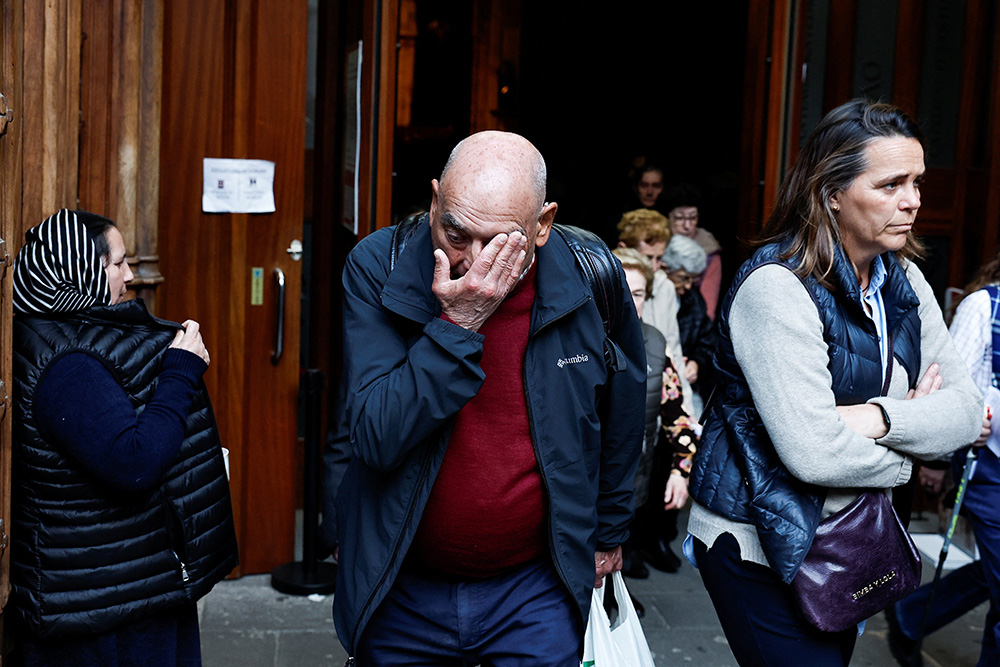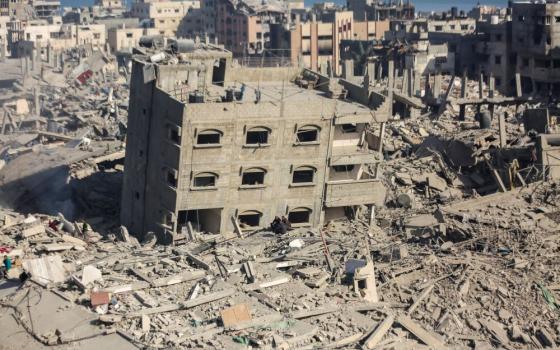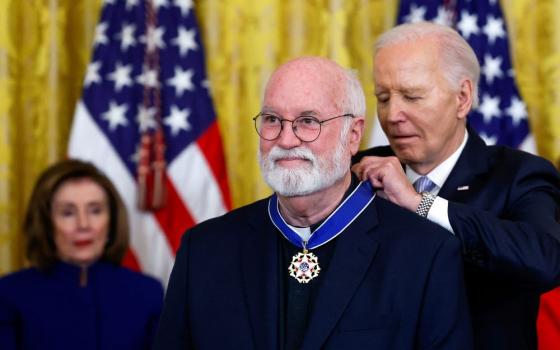
A man reacts while leaving Santiago Cathedral in Bilbao, Spain, after a Mass celebrated March 24, 2023, to recognize and apologize to victims of sexual abuse within the Catholic Church. The Mass was concelebrated by Bishop Joseba Segura of Bilbao and Fr. Josu Lopez Villalba, a victim of sexual abuse. (OSV News/Reuters/Vincent West)
The Spanish government April 23 approved an economic compensation plan for victims of sexual abuse committed by priests and other people linked to the Catholic Church.
Félix Bolaños, who is minister of the presidency and justice, said the plan followed recommendations made in a 2023 report by Spain's ombudsman to "prevent, repair and settle the debt with the victims" of sexual abuse within the church.
"It is essential that the church assumes its responsibility," Bolaños told journalists at a morning press conference April 23.
Ángel Gabilondo, the Spanish ombudsman, concluded in his report that some 440,000 adults may have suffered sex abuse in Spain by people linked to the church and that roughly half of those cases were committed by clergy.
Bolaños said the compensation would be financed by the church.
But in an April 23 statement, the Spanish bishops' conference rejected the plan, saying it discriminated against victims outside of church circles. "The Church cannot accept a plan that discriminates against the majority of victims of sexual abuse," the bishops said.
No details were released of how much financial compensation or when would be paid. Neither was a date set for any public act of recognition.
Advertisement
Bolaños said the plan aimed to "settle a debt with those victims who for decades were forgotten by everyone and now our democracy aims to repair that," and make it a central part of government policy, the cabinet minister said.
The specific measures, according to the minister, will follow five key elements recommended in Ángel Gabilondo's report: recognition and reparation, care for victims, prevention, training and awareness, and information and investigation of the cases. The plan also mentions the organization of a public event of "symbolic reparation" and "sufficient material reparation for victims" who have not had an "opportunity for reparation in the judicial sphere."
During the press conference, the minister of the presidency revealed that he has already talked to church officials. "Last week I had the opportunity to meet with the new president of the conference (Bishop Luis Argüello of Valladolid), and I would like the government to be able to work with the Catholic Church in reparation for these sexual abuses." He also has said that "this dialogue must continue" to shed light, especially in decades-old cases with "evidential difficulties" or "obvious statute of limitations."
Bolaños added that the Catholic Church has recognized "the existence of these abuses," emphasizing its "willingness to collaborate."
For its part, the Spanish bishops' conference has indicated that "the action that the Church has been developing against sexual abuse coincides, to a large extent, with the five axes of action that this plan proposes," said the bishops in a statement followed by a video message by Auxiliary Bishop César García Magán of Toledo, the bishops' conference's general secretary.
The bishops pointed out in their statement, however, that "by focusing only on the Catholic Church (the government) addresses only part of the problem," excluding victims of perpetrators outside the church and leaving out "nine out of ten victims" in Spain.
According to Spain's bishops, the financial compensation plan is "a public and discriminatory accusation by the state," which incurs "partial" and "hides a social problem of enormous dimensions."
Despite these reservations, Magán has clarified that, in any case, "the Church maintains its commitment to continue welcoming all victims of sexual abuse, to accompany them and compensate them."










